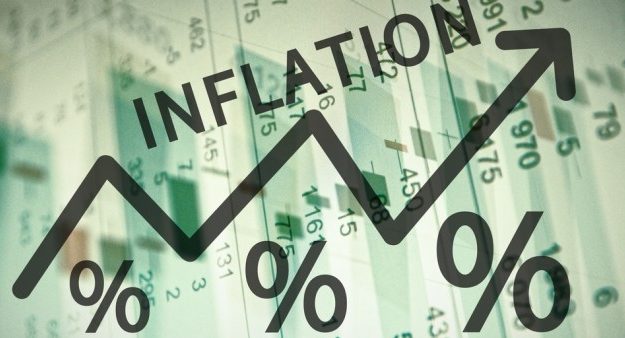What Makes Markets Jittery

Investors brace for a nerve test as inflation worries rise. The in-depth analysis of the Financial Times
For too long, over a year, money management has been relatively straightforward, with stocks on the rise. This is instilling an anxious sense that something must go wrong, and putting pressure on some of the more bubbly elements of the equity markets, writes the FT .
Earlier this month, Janet Yellen was responsible for wiping out some of that foam. In an event hosted by Atlantic magazine, the former chairman of the Federal Reserve, now the secretary of the United States Treasury, uttered words that aroused fear in the thoughts of some attendees: “Interest rates may need to rise a little. to make sure our economy doesn't overheat ”.
It is almost comical that this provokes any reaction from the market. The Fed cut rates to zero and turned on the stimulus device in the coronavirus crisis months last year. Now, fortunately, vaccination rates in the United States are high and infection rates are going down. Business is returning to normal, quickly. Fast enough, in fact, to cause bottlenecks and supply problems in everything from lumber to labor.
You don't need a rocket scientist to see how this might turn out. Making predictions is foolish, but I'm ready to expose myself here: the next move in US interest rates will be higher, not lower.
And again: take out the salts. Following Yellen's comments, some of the tech stocks that have shone over the past 12 months have swooped, and the Nasdaq Composite ended the day nearly 2% down. Yellen herself quickly clarified her remarks. He wasn't "predicting or recommending" a rate hike, which is no longer in his domain anyway.
Some analysts have described the Treasury secretary's words as a misstep that spurs volatility. Colder minds saw it as a statement of the obvious. The market reaction only underscores how subtle some investors have become and how carefully monetary and fiscal politicians have to choose their words.
“The markets seem determined to live in the past,” wrote Paul Donovan, chief economist at UBS Wealth Management. “Consumer price inflation in every economy tells us about the oil price of a year ago. It's not a worry, but the markets want to worry about something ”.
Market movements this week again suggested that the urge to worry is strong. High-growth tech stocks fell on Tuesday in anticipation that Wednesday's US inflation reading would be high. On Wednesday, they fell again as inflation actually proved hot.
The latest assessment of US consumer prices showed a 4.2% rise in April from a year ago – the strongest reading since September 2008. Some of the details were even more surprising; Prices of used cars and trucks jumped 10% in April alone, representing a large chunk of the overall index gains.
Again though, none of this should come as a big surprise.
"Wall Street appears to be climbing the wall of concern," said Gregory Perdon, co-head of investment at private bank Arbuthnot Latham. “Bears are constantly looking for signs that the world is about to end. They come up with all the potential excuses. The reality is that the only question that matters is whether the reopening is going well or not. And it's going well. And Europe is recovering ”.
The reasonable assumption is always that the Fed likes to provide unexpected stimulus. She does not like to shock the system with unforeseen restraint measures that limit financial conditions. Thus, while the central bank has pledged to maintain a super accommodative policy even in the event of above-target inflation, some rate fixers have begun to mentally prepare the market for a possible return to normal. The past few days and weeks show that investors will have to learn to live with this.
Volatility is centered in tech stocks, which seems like the right place. This is bad news if you are, for example, Ark's Cathie Wood. Its flagship Innovation fund that follows tech stocks has fallen more than a third from its February peak.
Stocks closely related to bitcoin and newly listed US companies are also taking a sharp fall. All of this is a recovery from the bond market shock of the first quarter. Fixed income specialists, who are always very gloomy, moved to assess a pick-up in inflation at the start of the year. Notably, while US 10-year yields rose Wednesday following the release of inflation data, they did not reach new highs.
Investors in companies that aren't turning a profit yet are on shaky ground after a spectacular run. For everyone else, aside from those who truly believe the resumption of inflation will get out of hand, it's time to prepare for frequent nerve tests.
(Extract from the Epr review)
This is a machine translation from Italian language of a post published on Start Magazine at the URL https://www.startmag.it/economia/inflazione-mercati-nervosismo-investitori/ on Sat, 15 May 2021 06:00:13 +0000.
